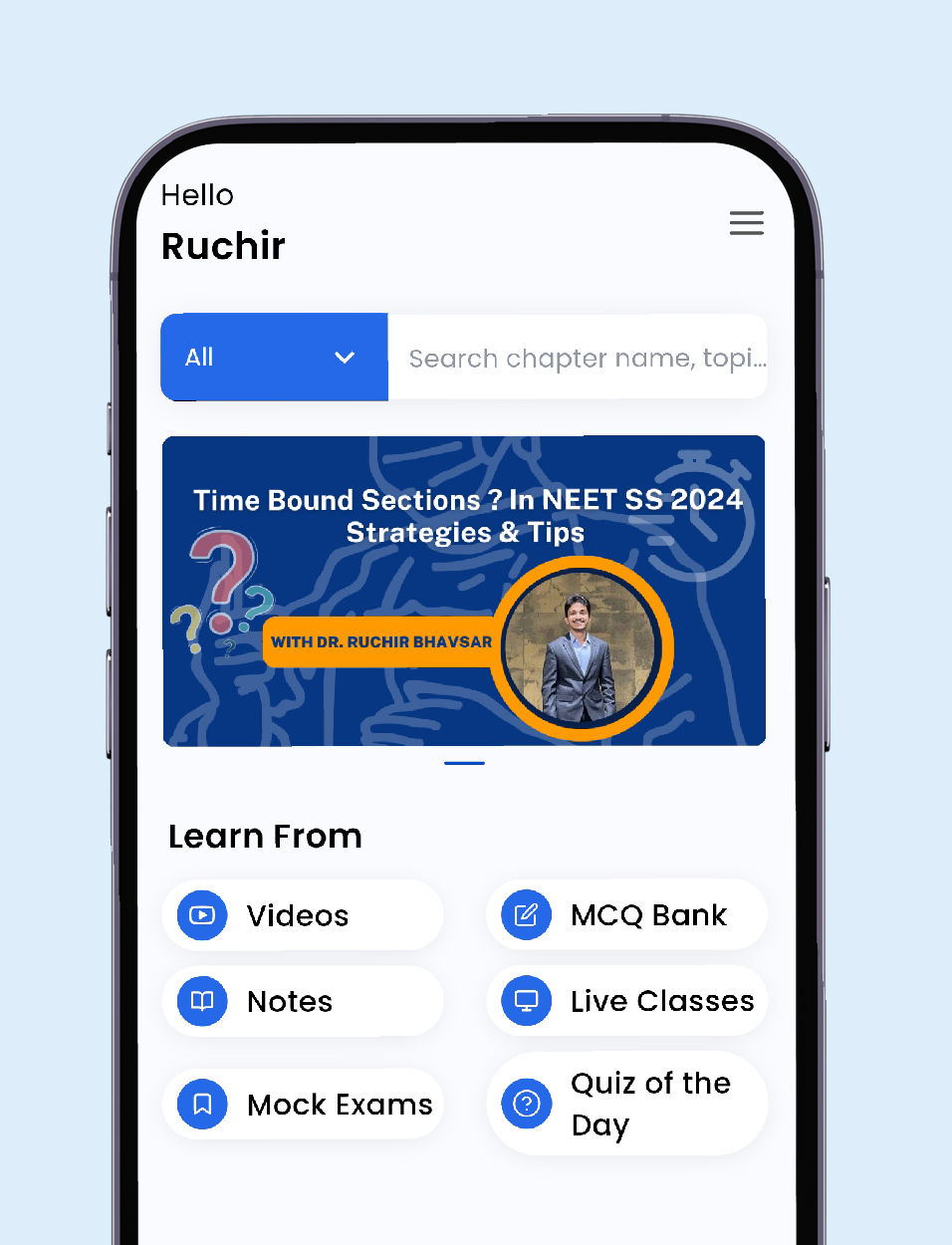By: Dr. Ruchir Bhavsar
As NEET SS Surgical Group aspirants, many of you might feel tempted to rely solely on solving MCQs for revision, thinking it’s the fastest and most efficient way to prepare. While MCQ practice is undoubtedly essential, it is not a substitute for theory revision. In fact, prioritizing theory revision from books, marked notes, or previously studied material should always be your first step, with MCQ practice serving as a supplementary tool to enhance your preparation.
Here’s why focusing on theory revision is critical and how MCQ practice fits into the larger preparation picture:
1. Theory Is the Foundation of NEET SS Preparation
The NEET SS exam is structured to test not just your factual knowledge but also your understanding and application of concepts.
Why Theory Revision Comes First:
- Comprehensive Understanding: Textbooks like Bailey, Sabiston, and Schwartz provide the depth and clarity required to build a strong conceptual foundation. MCQs, while helpful, often focus on isolated points that may not provide the full picture.
- Marked Notes as a Roadmap: Your previously read and highlighted sections in textbooks or notes reflect your understanding during your initial preparation. Revisiting these can solidify concepts and refresh your memory efficiently.
- High-Yield Topics: Revision ensures you don’t miss essential topics often asked in the exam. A well-structured theory revision keeps you aligned with the syllabus and prioritizes high-yield areas.
2. The Pitfall of Solely Relying on MCQs
While MCQ practice is an active learning method, relying on it exclusively has limitations:
- Fragmented Knowledge: MCQs often test specific points, leaving gaps in your overall understanding of a topic. Without revisiting theory, you risk missing the broader context or critical interconnected details.
- Risk of Overconfidence: Getting MCQs correct might give a false sense of preparedness, but this doesn’t always translate to mastering the subject.
- Limited Coverage: Textbooks and notes remain the gold standard for complete preparation.
3. How Theory Revision Enhances MCQ Practice
The best preparation strategy combines theory revision with MCQ practice, where each complements the other. Here’s how they work together:
A. Revise Theory First
- Start by revisiting your notes, marked sections, or high-yield topics from textbooks.
- Focus on understanding concepts, diagrams, tables, and clinical correlations.
B. Practice MCQs for Reinforcement – SPACED RECALL
- After revising a topic, solve MCQs to test your knowledge and application skills but after 5 to 7 days.
- Use the explanations for incorrect answers to revisit weak areas in your theory.
- Spaced recall technique helps you to use MCQ practice as a extra revision.
C. Learn Through Integration
- Revision followed by MCQ practice helps you retain information longer. It bridges the gap between theoretical knowledge and practical application.
4. The Balanced Approach: Theory + MCQs
To ensure effective preparation, prioritize a strategy that emphasizes theory revision as the primary focus, supplemented by MCQ practice.
Step 1: Plan Your Revision
- Dedicate time to revisiting marked sections or notes for every topic.
- Use rapid revision notes for quick reference to high-yield points.
Step 2: Practice MCQs Strategically
- Solve MCQs after revising each topic and after a gap of 5 to 7 days, not before.
- Use topic-wise MCQs to reinforce recently revised content.
Step 3: Analyze and Improve
- After practicing MCQs, identify weak areas and revisit the corresponding theory to strengthen your understanding.
5. Why Theory Revision Must Be Your Priority
- Building a Strong Foundation: Theory helps you connect the dots and understand the “why” behind each answer. This is especially important for complex surgical topics.
- Answering Beyond Direct Questions: NEET SS includes application-based and scenario-driven questions that require more than superficial knowledge.
- Reducing Knowledge Gaps: Comprehensive theory revision ensures you don’t rely on guesswork during the exam.
6. Practical Tips for Effective Revision
- Stick to Trusted Sources: Revise from standard textbooks like Bailey, Sabiston, and Schwartz, along with your class notes or marked study material.
- Prioritize High-Yield Topics: Focus on topics with a high probability of being asked in the exam.
- Use MCQs Wisely: Treat MCQs as a tool to consolidate learning, not as the sole source of revision.
7. The Final Word: Theory First, MCQs Second
Remember, MCQs are a great way to test your preparation, but they are not a replacement for theory revision. Your priority should always be to revisit the material you’ve already studied, ensuring your concepts are clear and your foundation is strong. Use MCQs as an additional tool to validate your learning and refine your preparation.
By following this approach, you’ll not only maximize your chances of success in NEET SS but also ensure you are well-prepared to tackle complex clinical challenges in your surgical career.







